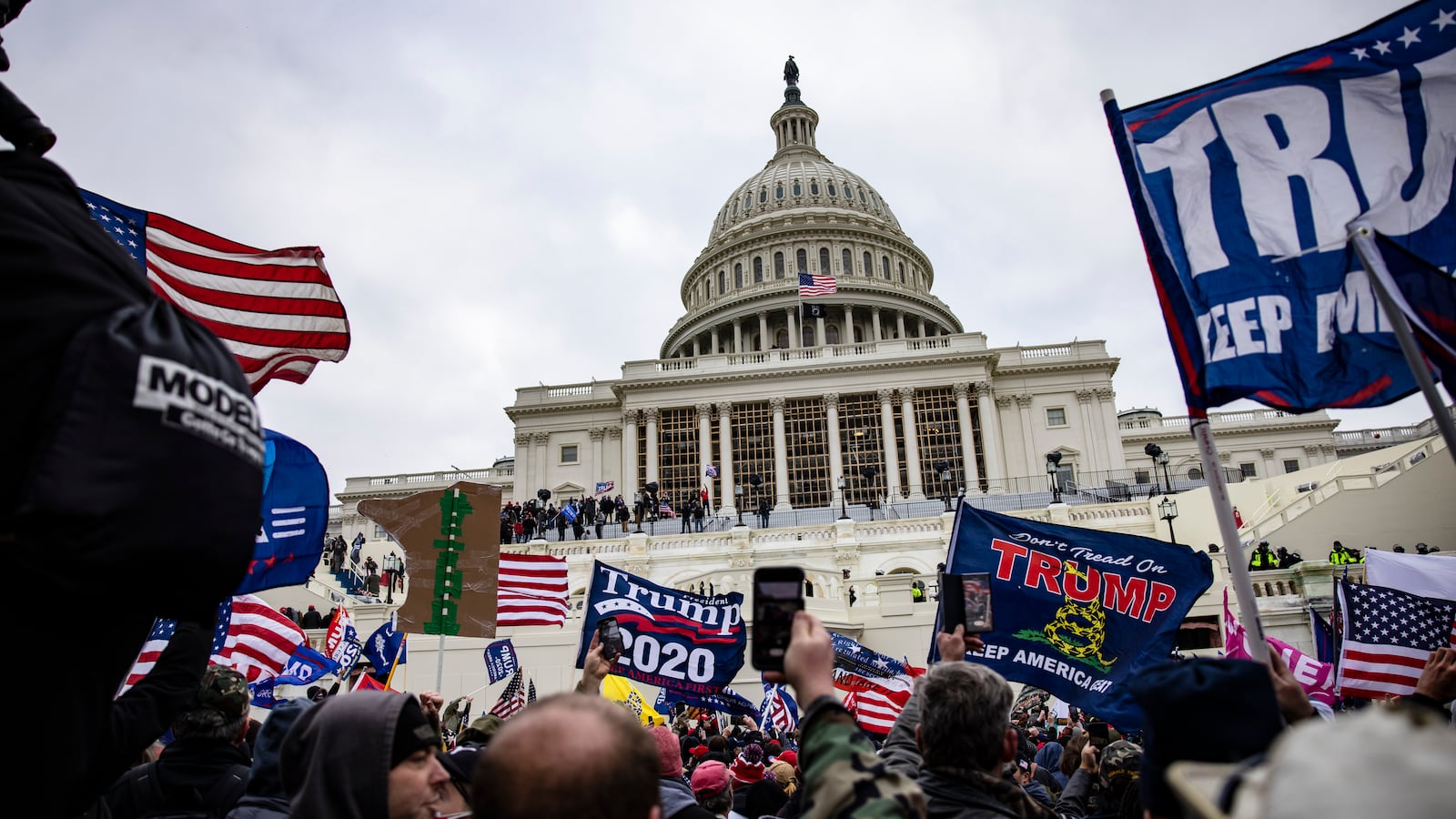Late in the evening of March 3, 1801, just after signing the last of the judicial appointments of loyal Federalists to an expanded federal judiciary, President John Adams wrote out another order. He suspended habeas corpus. He ordered the small U.S. Army detachment in the new capital city, Washington, D.C., to establish a cordon around the U.S, Capitol, where the next day’s inauguration was to take place.

He issued a warrant for the arrest of leading Republicans, including James Madison, Aaron Burr, and President-Elect, Thomas Jefferson. Federal marshals arrested each man for violating the Sedition Act. Adams’ order explained that the threat from the Jeffersonian Republicans to the United States was severe, and he could not in good conscience honor the election results, such was his devotion to the nation. So Adams canceled the results of the Electoral College and blocked the first peaceful exchange of power in U.S. history.
Up through 2020, I annually narrated the above story on a winter’s day in my chilly Jersey classroom. And my high-achieving, eager-to-please 10th graders bent over their notebooks, scribbling down every word. But each year a small handful not only wouldn’t write this down. They would look back at me with a sort of smirk that suggested they were in on the ruse. I’d smile tightly and continue telling the story.
It ended, after a pause, when I would say, “Of course, none of this happened.” The students who had been dutifully taking notes slammed down pens, squawked, and stared at me stunned. You lied to us!
I would explain to them that Adams didn’t like the results. But instead of getting in the way of a peaceful transfer of power, he left town, unwilling to watch Jefferson’s swearing-in.
And I would say, “Of course, Adams gave way to Jefferson. This is the United States, right?”
Then I’d explain that, actually, it’s not just because we’re the USA. It’s chiefly because John Adams chose to do the right thing and follow the U.S. Constitution. And we’d then write down in our notebooks (for real) this: Adams’s ceding of the presidency to the electoral victor, Thomas Jefferson, constituted the first peaceful exchange of power in United States history. And every other president followed Adams’ precedent.
I would always add, “There are nations in our world today that still have not figured out how to do this.”
January 6, 2021, did many things, some of which we’re still discovering, but it absolutely torpedoed this lesson. The tale that I wove each year around Adams’ refusal to recognize the legitimate presidential election results, sad to say, no longer appears that outlandish.
‘Of course, Adams gave way to Jefferson. This is the United States, right?’
The conundrum for a public high school social studies teacher teaching about the January 6 insurrection is not to sacrifice one’s credibility while also not pushing one’s own political beliefs on students.
My approach before I retired last year allowed students to speak up as freely as they wanted under the terms of a classroom compact (agreed to by one and all) while pointing out that much of what happened that January day was not “normal” to American democracy.
I had an advantage that other teachers trying to thread this needle may not have. I enjoyed the support of colleagues, administrators, students, and parents. You may be a high school teacher working in a less generous environment — one in which local and state politicians have trained their sights on teaching history. You have my thanks and deserve the thanks of all our fellow citizens for your dogged, noble work on behalf of American democracy.
Two years on, I still worry as a citizen about many things relating to then-President Donald Trump’s refusal to concede the election he lost — and the deadly attack by many of his supporters on the U.S. Capitol. But from a teaching standpoint, I worry for our students. Born in the mid-2000s, they’ve come of age in a nation that witnessed a violent attempt to overthrow an election. When in the future a charismatic leader scornful of norms and contemptuous of constitutional democracy rises to power, from the right or the left, will our students view that January 6 invasion as somehow “normal,” a legitimate precedent?
They won’t, at least not if we do our job as social studies teachers. That starts with defining for them what democracy means and does not mean at the very outset of any course in American history or government. And let’s drive our students just a little crazy by regularly asking them to cite and analyze evidence of the relative health of American democracy, both at specific points in history and today.
Let’s enthusiastically reinforce the lasting value of the actions of wildly diverse Americans across time who strengthened “government of the people, by the people, for the people” — and hold up for scrutiny those who sought to thwart that cause.
Richard Schwartz taught social studies at Whippany Park High School in Whippany, New Jersey, for 43 years before retiring in June 2022. He is the author of “The Prairies on Fire: Lincoln Debates Douglas, 1858.”



